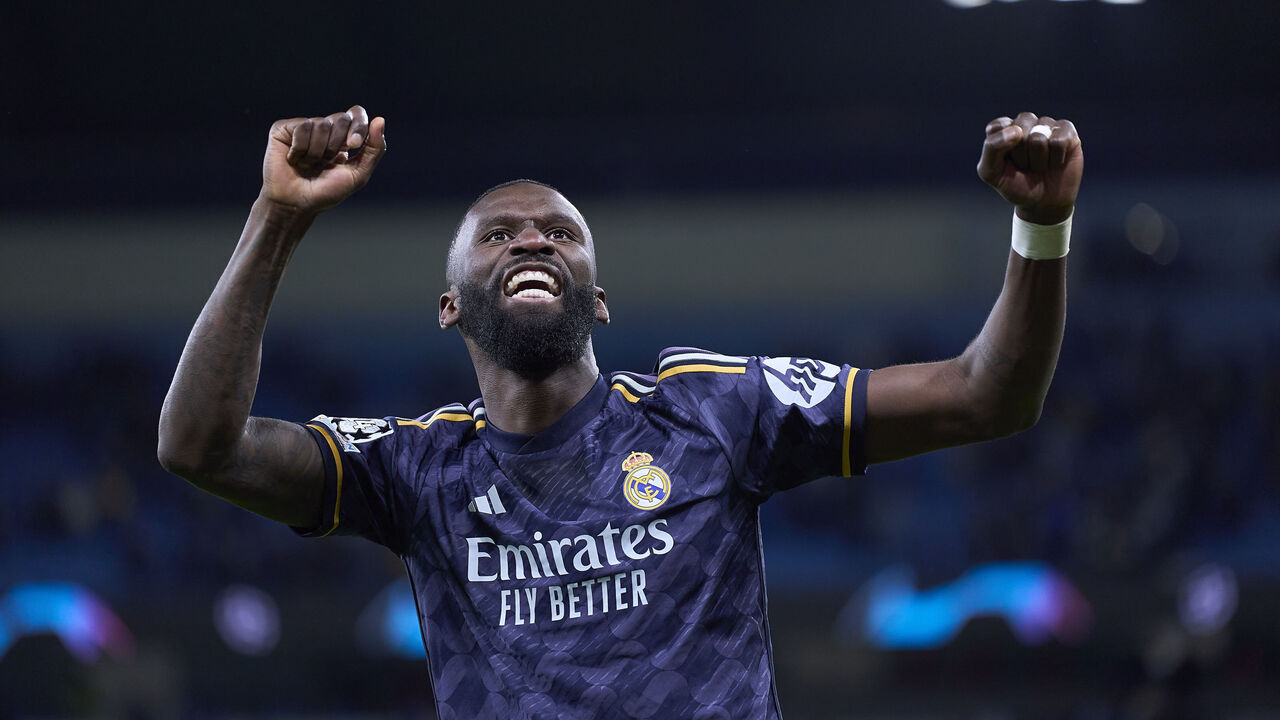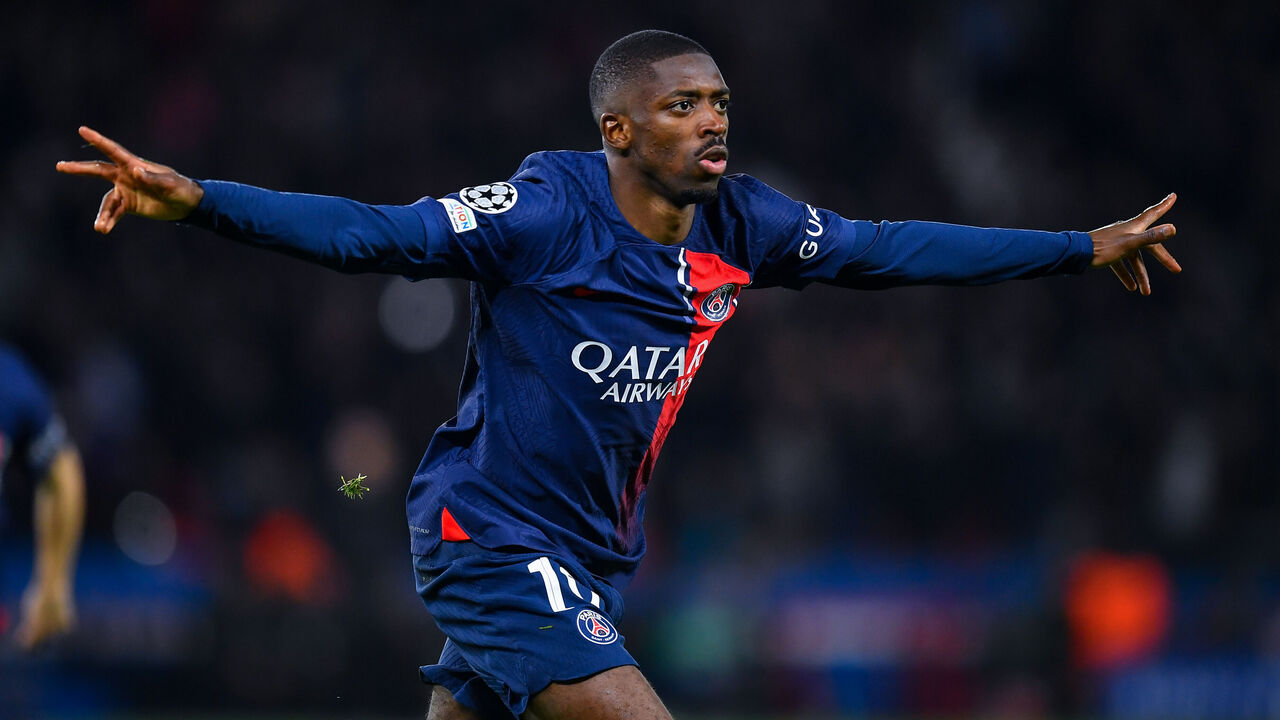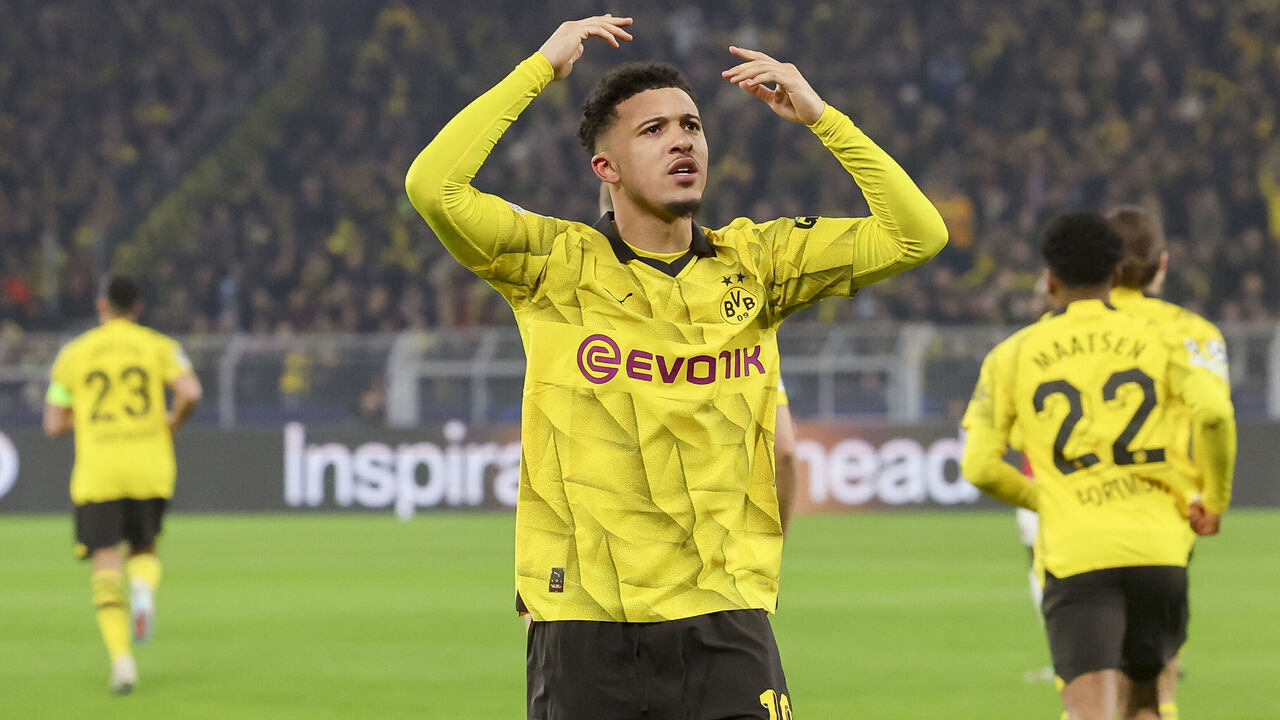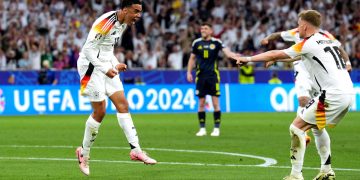Find the biggest stories from across the soccer world by visiting our Top Soccer News section and subscribing to push notifications.
A sensational Champions League quarterfinal stage is in the books. Before we look ahead to the semis on tap, we’re reviewing the thrilling action that left Real Madrid, Bayern Munich, Paris Saint-Germain, and Borussia Dortmund as the last four teams in Europe’s premier club competition.
Winner: Real Madrid’s aura
Seriously, how do they keep doing this? Manchester City dominated Wednesday’s second leg against Real Madrid by every possible metric. The reigning champions had 34 shot attempts. Real Madrid mustered eight. Pep Guardiola’s team won 18 corner kicks. Carlo Ancelotti’s side earned one. Man City completed twice as many passes and forced the visitors to camp inside their own penalty area for virtually the entire match after Rodrygo’s early opening goal. The pitch may as well have been tilted. Once Kevin De Bruyne smashed home an equalizer from close range in the 76th minute, it felt like the winning goal was only a matter of time for City. To a man, Madrid’s players looked gassed. They exerted so much physical effort simply chasing the ball around for so long and spent even more mental energy trying to maintain their defensive assignments and not lose focus for even a second against City’s swarming press, intricate movement patterns, and attacking onslaught.
Manchester City 1-1 Real Madrid (3-4 pens, 4-4 agg)
Nothing like a couple of missed pens to kill 120 minutes of momentum (see ??). Nevertheless, the defending champions are out and the perennial champions are through.#UCL #MCIRMA pic.twitter.com/7dEGyUwlKD
— Opta Analyst (@OptaAnalyst) April 17, 2024
And yet, here we are. The perennial kings of the competition are back in the semifinals after a captivating shootout victory, and the holders – who were chasing a second consecutive treble – were left to wonder how, exactly, they were eliminated. Most teams would crumble under the incessant weight of Manchester City’s pressure, but Real Madrid are not most teams. This is their competition. One way or another, they (almost) always find a way. Guardiola’s squad humbled them last season. The 14-time European champions, through sheer willpower and some luck, wouldn’t let it happen again. They’re now the undisputed favorites to hoist the famous big-eared trophy for the 15th time. Who would bet against them?
Loser: Erling Haaland
Haaland wasn’t totally ineffectual at the Etihad. He hit the post with a looping header in the first half and was a menace in the box throughout Wednesday’s contest, occupying the attention of multiple defenders and opening up space for his teammates. That’s baked into City’s style of play and effectiveness. For all the talk of Haaland’s involvement – or lack thereof – in his team’s buildup, the suggestion that he doesn’t contribute enough is simply inaccurate.
But, once again, he failed to find the net against Real Madrid. He came up empty in the one stat that matters most. Julian Alvarez is a sublime talent, but it was still jarring to see Haaland, the world’s most fearsome goalscorer, get the hook heading into extra time. Even with the potential for penalties looming, Guardiola thought the Argentine gave City a better chance to win than the game’s most prolific striker. No matter how you slice it, that’s an indictment on the Norwegian’s performance over the two legs. Real Madrid did an exceptional job keeping Haaland quiet, and much of that credit belongs to one player in particular …
Winner: Antonio Rudiger
Rudiger was a monster in the quarterfinals. He was primarily responsible for keeping Haaland quiet, especially in the first leg in Madrid, where he effectively shadowed the fearsome forward all game long. His assignment wasn’t quite the same in Wednesday’s return fixture, but he anchored the resilient and resolute Real Madrid backline all the same. It’s what he’s been doing all year, in truth.

Only Fede Valverde has played more minutes than Rudiger for Ancelotti’s side this season. The German held things together after the devastating knee injuries suffered by defensive peers David Alaba and Eder Militao. It was only fitting, then, that he was the one to deliver the decisive spot-kick that sent Real Madrid to the semis, getting a moment directly in the spotlight after doing so much dirty work in the trenches for his team.
Loser: Premier League coefficient
Neither had anything to do with the results, but one of Aston Villa or Tottenham Hotspur could end up being amongst the biggest losers of this week’s quarterfinal matchups. The pendulum just swung violently in favor of the Bundesliga in the German division’s battle with the Premier League to secure a fifth spot in next season’s revamped Champions League. Losing both Arsenal and Manchester City while seeing Borussia Dortmund and Bayern Munich advance leaves the Premier League’s chances of securing the additional berth for the 2024-25 tournament hanging by a thread.
Barring some stunning comebacks in the Europa League, everything could be sorted by Thursday evening, with Italy’s Serie A the other top tier all but assured of getting the coveted additional spot. Suddenly, the scrap for fourth place in England’s top tier – a direct shootout between Villa and Tottenham – carries more weight in the campaign’s final weeks.
Winner: Ousmane Dembele
Ousmane Dembele faced harsh, often over-the-top criticism from every angle during his time in Barcelona. Fans, pundits, and even club executives – chief among them Barca president Joan Laporta – criticized the French winger incessantly, especially as his contract saga dragged on before his eventual transfer to Paris Saint-Germain. Though he was gracious when discussing his ex-club after Tuesday’s seesaw victory, inside, Dembele surely revelled in knocking Barcelona out of the Champions League. How could he not?

That he played a starring role likely only made it sweeter. The lithe winger has only scored three goals all season, but two of them came against Barca in the quarterfinal tie, including the resounding finish into the roof of the net that helped kickstart PSG’s comeback in Montjuic. Dembele, ruthlessly jeered by the Barcelona fans every time he touched the ball Tuesday, is heading to the Champions League semifinals, and his PSG side will be heavy favorites to beat Borussia Dortmund and reach the showpiece match. Barca, meanwhile, can do nothing but lick the wounds inflicted on them by their former player.
Loser: Xavi
Ahead of the second leg against PSG, Xavi talked at length about the importance of maintaining a cool head and not losing focus. That, he said, would be crucial if Barcelona wanted to reach the Champions League semifinals for the first time since 2019. But when it came time to practice what he preached, the manager imploded. His team followed his lead. Xavi, incensed by the first-half red card shown to Ronald Araujo, lampooned referee Istvan Kovacs after the match, branding the Romanian official a “disaster” who “does not understood football.” The sending-off obviously changed the entire complexion of the tie, but, ultimately, it was the correct decision.
Despite Araujo’s lengthy protestations, there were multiple points of contact that brought Bradley Barcola down, and Pau Cubarsi hadn’t retreated far enough to be considered the last defender on the play. Xavi never recovered from that incident. Every subsequent decision that went against his team was met with a sarcastic reaction on the touchline. It was no surprise, then, when he finally went overboard and got himself sent off for an absurd response to a routine foul call. The timing couldn’t have been worse; Xavi’s red card came two minutes after Vitinha scored to level the tie at four apiece. He can blame the referee all he wants, but with his team self-destructing, the outgoing bench boss needed to keep his composure. Though a man down and with all the momentum against them, Barca were still just one shot away from taking an aggregate lead. Instead, four minutes after his coach was dismissed, Joao Cancelo, who himself had a rough outing, conceded a foolish penalty that effectively completed Barcelona’s collapse.
Winner: Jadon Sancho
Just a few short months ago, Sancho found himself banished from the Manchester United squad amid a bitter public feud with headstrong manager Erik ten Hag. His season totally derailed, and the English winger’s entire career was at risk of stagnation at just 24 years old. Now he’s a protagonist for a Borussia Dortmund side enjoying an unlikely run to the Champions League semis, while his Dutch adversary is fighting to save his tenuous job every week. Fortunes can change quickly.

Sancho may not have been the main reason Dortmund managed to turn the tide against Atletico Madrid, but his inventiveness and dribbling ability have added an extra spark to a Dortmund attack that often looked stale and bereft of ideas before his January arrival. They’ll be heavy underdogs in their semifinal clash with PSG, but if Sancho is on his game, he can cause problems for the French club’s backline, especially in transition.
































Connect with us